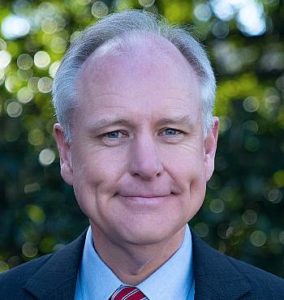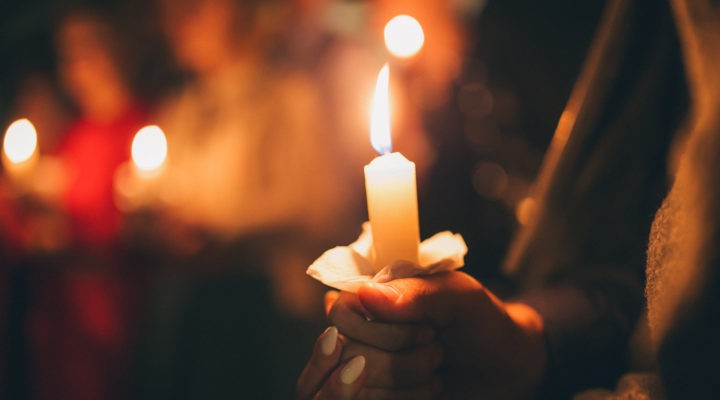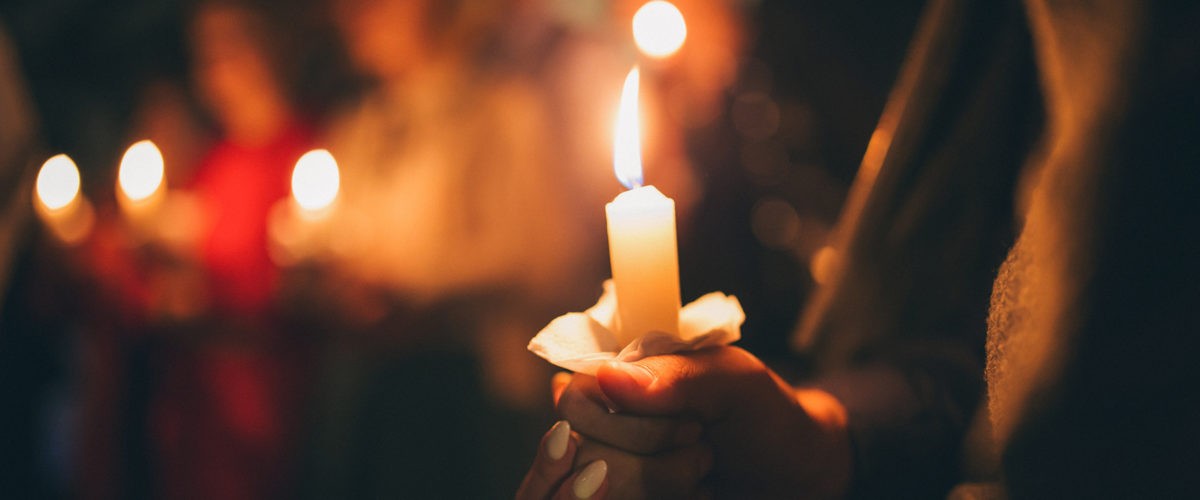Attending religious services, gift giving and travel are expected to decline for many Americans during this Christmas season due to the COVID-19 pandemic, LifeWay Research has reported.
But the coronavirus apparently cannot dampen the spiritual yearnings of some Americans who expect to boost devotional practices during the holidays, the survey found.
“Around 3 in 5 adults (59%) say their spiritual reflections this year will stay the same, but 19% say they expect it to increase.”
Even a casual Google search bears out that finding. Links to articles and blogs abound showing denominations, churches and clergy catering to a high demand for spiritual practices appropriate for a Christmas season plagued by the coronavirus.

Paul Baxley
Paul Baxley, executive coordinator of the Cooperative Baptist Fellowship, recently blogged about the solace provided in trying times by observing Advent traditions like lighting candles.
“For all that was different, even in the midst of difficult and debilitating pandemics, some things were the same,” he said in his Dec. 1 post, “A Substantial Hope.”
“I cannot remember any Advent season when the weight has been any heavier than this one, but for the same reason, I cannot imagine any time when the message of Advent is more necessary than it is right now.”
New approaches also can be helpful for the 2020 holidays, Josephine Robertson, an Episcopal priest in Bellevue, Wash., said in a post to her Barefoot Theology blog.

Josephine Robertson
“Fortunately, preparing for and celebrating the feast of the Incarnation is something we can do authentically and well, even in the midst of a pandemic,” she said.
She suggested attending virtual Christmas Eve services, relaxing on Christmas Day and writing letters, calling friends, getting outside and other fun activities during the 12 days of Christmas.
“Remember that Jesus prioritized wholeness and care for the vulnerable over everything else, including religious obligation and family ties,” Robertson wrote. “Jesus’ heart for the vulnerable should be our guiding light through the Christmas season.”
“Even among the religiously unaffiliated, 10% say the pandemic has made them more likely to spend time in spiritual reflection during the holidays this year.”
Religious Americans will not be alone in maintaining or increasing their holiday spiritually, LifeWay Research reported. “Even among the religiously unaffiliated, 10% say the pandemic has made them more likely to spend time in spiritual reflection during the holidays this year.”
Yet others will either decrease or avoid devotional activities altogether, the research group added: 12% of Americans say reflections will have no part of their Christmas experience, and 9% expect to be less spiritually reflective.
The survey revealed that a lot of Americans expect the pandemic to negatively impact their attendance at a Christmas service this year: 25% are less likely to attend those services compared to 37% who expect no change. Only 11% said the coronavirus outbreak increases their chances of attendance.
“Young adults, those aged 18 to 34, are the most likely to say COVID-19 has made them more likely to attend a Christmas church service (15%),” the survey said.
The organization also found divisions on whether or not to engage in other cultural holiday traditions.
“Some Americans are reacting to the effects of COVID-19 by doubling down with plans to celebrate more,” Scott McConnell, the organization’s executive director, said in a LifeWay Research article about the survey. “Other Americans will scale back their traditions likely due to safety, finances or their state of mind.”
35% plan to spend less time visiting family at Christmas than in previous years, while 47% said their plans remain unchanged.
The survey found that 35% plan to spend less time visiting family at Christmas than in previous years, while 47% said their plans remain unchanged by the pandemic.
“Those more likely to be in high-risk health categories are also more likely to say they’ll be spending less time visiting their family,” LifeWay Research reported. “Americans aged 50 to 64 (43%) and those 65 and older (38%) are more likely to avoid such visits than young adults aged 18 to 34 (28%).”
The survey also revealed that 20% of Americans expect to give fewer gifts this year compared to previous Christmases, while two-thirds expect no change and 9% plan to give more.
LifeWay research noted that tendencies found in the survey to travel, visit family, give gifts and attend Christmas services were most associated with evangelical Christians. “Americans with evangelical beliefs are among the groups most likely to say COVID-19 is leading them to do even more this holiday season.”


